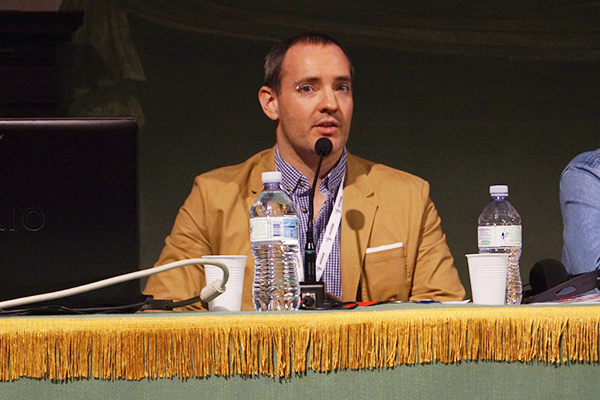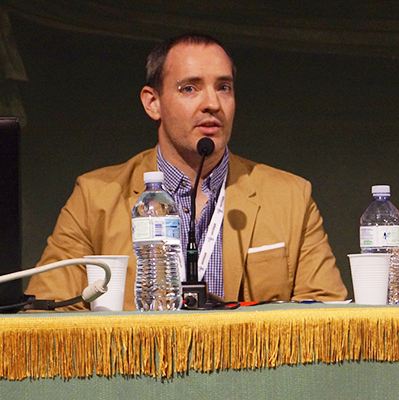
“Hurricane Sandy, the amount of fake images that spread, and some of the efforts to debunk them, got me thinking even more about verification.”
– Craig Silverman
The proliferation of rumour and dubious images and video that follow big news stories, and the ease with which even established news organisations can fall for fake User-Generated Content (UGC) provide a clear example of why something like a Verification Handbook is needed.
At their panel discussion yesterday, the authors of the Handbook stressed that claiming UGC cannot be verified is false. It does take time– which is why the process is often overlooked. “The most dangerous person is one that’s well-meaning but doesn’t have enough time on their hands,” said Mathew Ingram of Gigaom. Whether the person sharing the piece of content is a professional or an amateur, “we can all be part of the problem.” Steve Buttry of Digital First Media shared an anecdote to explain how unreliable even confirmed eyewitness accounts can be. As the parable of the blind men and the elephant illustrates, being at the scene of an event doesn’t necessarily give one a clear view of events.
So how to spread the message contained in the Verification Handbook? Here’s what Craig Silverman, founder and editor of the Poynter Institute blog Regret the Error, had to say about spreading the message:
What role do you see journalism schools playing in providing UGC verification training?
I’m not aware of any verification-specific courses. I think it needs to be baked into the year one curriculum. We’ve had good feedback from journalism educators in the US and UK. We need to put more effort into that, so one of the things that’s going to help is the AEJMC conference (Association for Education in Journalism and Mass Communication) that’s coming to Montreal where I live, in August. I’m going to be doing a couple of sessions around it there.
And newsrooms?
When it comes to the newsrooms, rather than trying to go one-to-one to newsrooms, [it’s about] getting to events like this festival, the Online News Association, we’re going to be at WAN-IFRA, the global editors network in a month. So getting to the events where you have lots of people from lots of different newsrooms in one place and getting the newsroom leaders and managers to bring it back is big.
What next?
“I think the other thing we need to do is to keep having the resources updated so that the information doesn’t get old. If the Handbook isn’t updated and kept up to date then people just won’t consult it anymore.”
“The first priority was just getting it up online, then we did the pdf and Kindle versions. The print version. We’re trying to get into many places.”
“I think the other thing – and this is the challenge for anyone just publishing in general – is how do you take all the nuggets that are contained within the handbook for people who don’t want to sit and read chapter after chapter? We need to take the little atomic units of the handbook and make those really digestible in different ways. That’s one of the plans.”
“Rina [Rina Tsubaki of the European Journalism Centre] mentioned a website we want to launch and expand. We’re going to do that, whether it’s online courses, just quick tips going out on Twitter and other places. We’re going to deconstruct the Handbook to get it out there a bit more.”
One key message from the book and the panel discussion is the need for individuals and organisations to figure out their verification processes before an emergency situation arises. As Craig Silverman said, “the worst time to try and figure out your verification processes is in an emergency. We go into fight or flight mode and that is the most difficult time to try and make detached decisions.” Building relevant and credible social networks ahead of time for specific regions and topics was another key point.
The European Journalism Centre is working on different language versions of the handbook including Arabic, Ukrainian, Greek and Spanish.
The Verification Handbook is available for free on verificationhandbook.com from where you can also download it in pdf, ePub and Kindle formats.


